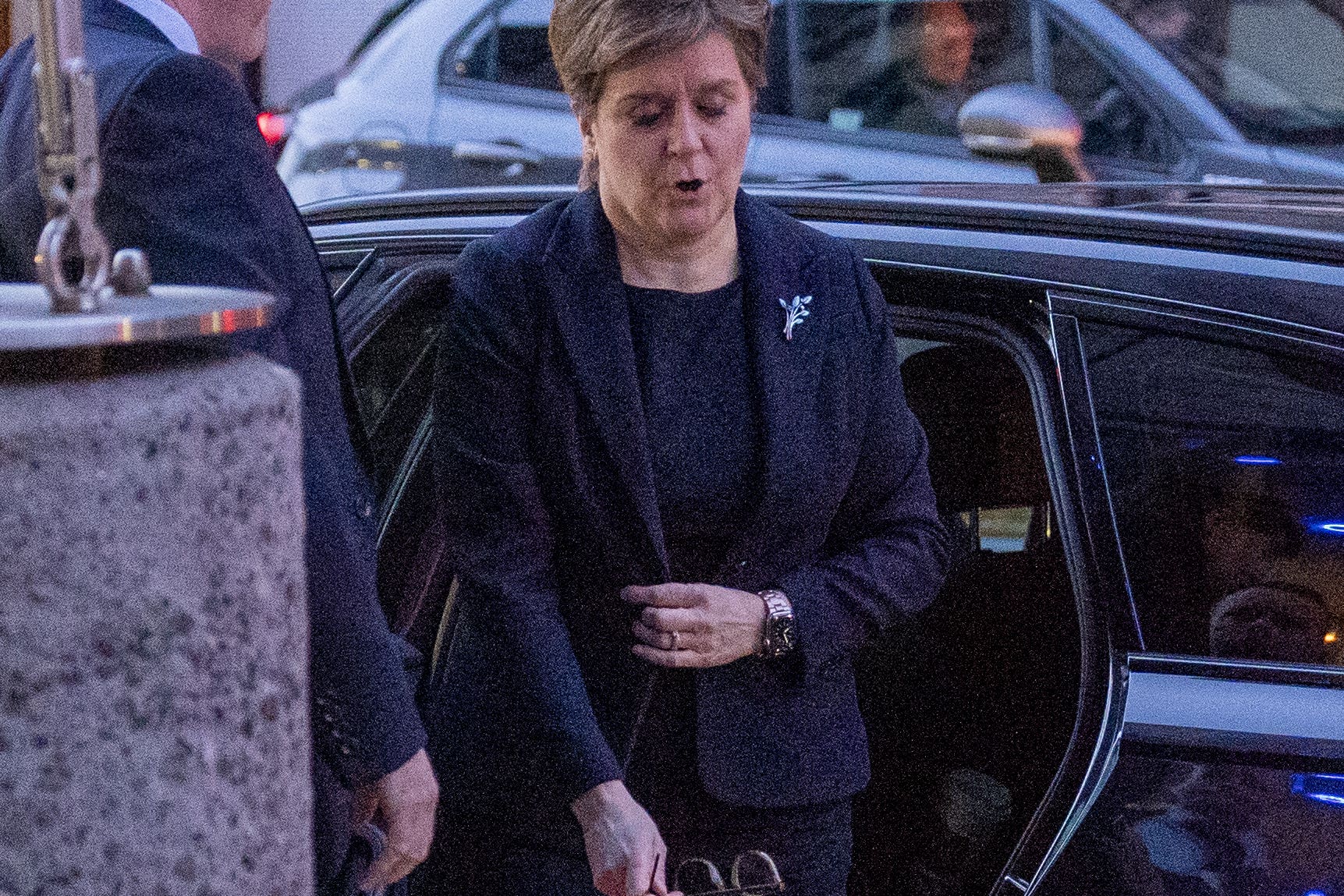Sturgeon says Covid briefing response on WhatsApps could have been more ‘clear’
The former first minister said she apologised for any lack of clarity in the answer she gave in a media briefing.

Nicola Sturgeon has said she could have been more “clear” in answering a journalist’s question at a Covid briefing, where she was asked whether an inquiry would have access to her WhatsApp messages.
Giving evidence to the UK Covid Inquiry, the former First Minister said she apologised for any lack of clarity in the answer she gave to Channel 4’s Ciaran Jenkins in during one of her media briefings in August 2021.
At the time, she said any inquiry would have access to the messages but, in fact, many had been deleted some months previously.
Referring to the exchange in August 2021, inquiry counsel Jamie Dawson KC said: “(Mr Jenkins) asked specific questions about informal means of communication, including WhatsApps.
“But you knew by that stage that your WhatsApps had been destroyed?”
Ms Sturgeon responded: “I also knew that anything of any relevance or substance from any of that material would be properly recorded in the Scottish Government system.”
She added: “I operated from 2007, based on advice, the policy that messages, business relating to government, should not be kept on a phone that could be lost or stolen and insecure in that way, but properly recorded through the system.
“I would want to again underline that communication was extremely limited and would not relate it to matters of substantive government decision-making.”
Mr Dawson pressed on, saying: “But that wasn’t the question you were asked, you were asked the question as to whether you would disclose emails, WhatsApps, private emails if you have been using them – whatever.
“He didn’t ask you the question as to whether the material that was contained within the discussions exchanged by those media was recorded on the corporate record.”
Ms Sturgeon replied: “As will have been the case in many occasions, over the course of not just the Covid pandemic, but in my many years in politics – when you’re answering questions, you’re trying to answer the substance of the question.
“And when you look back at the literal terms of the answer, it can be put to you in that way.
“So I accept that and I apologise if that answer was not as clear.
“But I also want to be very clear and give the inquiry a personal assurance that I am certain that the inquiry has, at its disposal, anything and everything germane to my decision-making during the process and the time period of the pandemic and the factors underpinning those decisions.”
She said decisions which she made during the pandemic would stay with her “forever” and it is important to learn from decisions which could have been made differently with hindsight.
Mr Dawson said there could be “no doubt” that decisions in the pandemic were “extremely difficult”.
Lady Hallett’s inquiry, which is currently sitting in Edinburgh, continues.
Bookmark popover
Removed from bookmarks